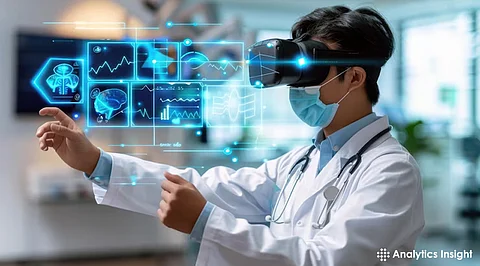

AI can actually assist doctors and hospitals, but only if used properly. Wrong data, neglecting updates, or over-reliance on AI may result in undesirable outcomes. Obeying rules, being fair to everyone, training employees, and ensuring that AI interacts well with other systems are all highly crucial. By taking the proper steps, AI can help healthcare improve safely and save lives.
Artificial Intelligence (AI) is changing the way healthcare works, from helping doctors make quicker decisions to improving patient care. However, implementing AI in healthcare isn’t always as simple as just adding some cool technology.
There are key mistakes that can easily happen during its use, and they can lead to bigger problems, like patient safety risks. Here are eight common mistakes to watch out for when using AI in healthcare.
AI systems work by analyzing tons of data. But if the data is bad, like outdated or incomplete information, the AI won’t perform well. Think of it like trying to study for a test with the wrong notes; no matter how hard you try, you won’t get the right answers. In healthcare, bad data can lead to wrong diagnoses or treatment recommendations. It's crucial to ensure the data used is accurate and up-to-date.
AI in healthcare is regulated by official bodies like the FDA in the US or the EMA in Europe. These regulations are there to protect patients and ensure AI tools are safe to use. Some healthcare organizations forget to get the necessary approvals before rolling out AI systems. Skipping this step can lead to legal trouble and, more importantly, put patients at risk.
AI has the power to make life-or-death decisions, so it must work fairly for everyone. If AI systems are trained on biased data, they can end up favoring one group over another. For example, an AI system could give better treatment options to men and ignore women’s health needs. It’s important to develop AI that’s transparent and doesn’t treat any group unfairly, ensuring it works for everyone equally.
AI is great at processing data and making predictions, but it shouldn’t replace human judgment. A doctor still needs to make the final decision, even if the AI suggests something. Relying too much on AI can lead to mistakes, especially in complex medical situations. AI should be seen as a helpful tool, not as a replacement for doctors or nurses.
Healthcare organizations tend to have numerous various technologies implemented. Introducing an AI tool can create issues if it is not compatible with the current systems.
Think about installing a new phone app that is not compatible with your current phone; it simply won't function as anticipated. Healthcare organizations must plan ahead to ensure AI tools are seamlessly integrated with current technology, so they don't disrupt patient care.
AI isn’t something you set and forget. Like any software, it needs to be updated regularly to stay effective. Without constant updates and retraining on new data, an AI system will become outdated and inaccurate.
This can lead to poor recommendations and decisions. To keep AI working well, healthcare providers need to regularly update the system with fresh data and new medical knowledge.
Even though AI is smart, healthcare professionals still need to know how to use it properly. AI tools can be complicated, and expecting staff to use them without training is a mistake.
Imagine trying to use a new video editing software without any instructions—things could go wrong. Staff needs training to understand how to interpret AI recommendations and make the right decisions based on them.
AI is powerful but not perfect. Some people promise too much, saying AI can solve all medical problems. That’s not true. If expectations are too high, people may be disappointed. It's important to be honest about what AI can and cannot do.
AI can do wonderful things for healthcare, but it must be treated carefully. Avoiding these common mistakes, such as bad data, failure to comply with rules, and overdependence on technology, so that AI can be utilized safely and successfully. By slowing down to deploy AI the proper way, healthcare can really gain from this fantastic tool.
